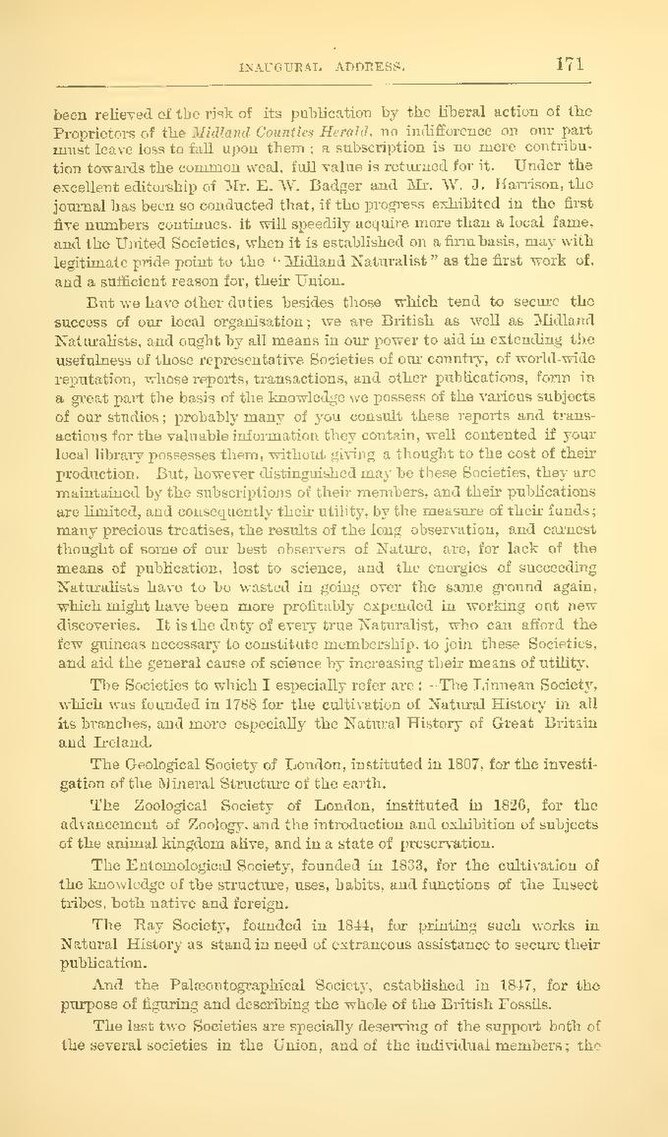been relieved of the risk of its publication by the liberal action of the Proprietors of the Midland Counties Herald, no indifference on our part must leave loss ta fall upon them; a subscription is no mere contribution towards the common weal, full value is returned for it. Under the excellent editorship of Mr. E. W. Badger and Mr. W. J. Harrison, the journal has been go conducted that, if the progress exhibited in the first fire numbers continues, it will speedily acquire more than a local fame, and the United Societies, when it is established on a firm basis, may with legitimate pride point to the "Midland Naturalist" as the first work of and a sufficient reason for, their Union.
But we have other duties besides those which tend to secure the success of our local organisation; we are British as well as Midland Naturalists, and caught by all means in our power to aid in extending the usefulness of those representative Societies of our country, of world-wide reputation, whose reports, transactions, end other publications, form in a great part the basis of the knowledge we possess of the various subjects of our studios; probably many of you consult these reports and transactions for the valuable information they contain, well contented if your local library possesses them, without giving a thought to the cost of their production. But, however distinguished may be these Societies, they are maintained by the subscriptions of their members, and their publications are limited, and consequently their utility. by the measure of their funds; many precious treatises, the results of the long observation, and earnest thought of some of our best observers of Nature, are, for lack of the means of publication, lost to science, and the energies of succeeding Naturalists lave to be wasted in going over the same ground again, which might have been more profitably expended in working out new discoveries. It is the duty of every true Naturalist, who can afford the few guineas necessary lo constitute membership, to join these Societies, and aid the general cause of science by Increasing their means of utility.
The Societies to which I especially refer are: The Linnean Society, which was founded in 1758 for the cultivation of Natural History in all its branches, and more especially the National History of Great Britain and Ireland, The Geological Society of London, instituted in 1807, for the investigation of the Mineral Structure of the earth.
The Zoological Society of London, instituted in 1826, for the advancement of Zoology. and the introduction and exhibition of subjects of the animal kingdom alive, and in a state of preservation.
The Entomological Society, founded in 1532, for the cultivation of the knowledge of the structure, uses, habits, and functions of the Insect tribes, both native and foreign.
The Ray Society, founded in 1544, for printing such works in Natural History as stand in need of extraneous assistance to secure their publication.
And the Palæontographical Society, established in 1847, for the purpose of figuring and describing the whole of the British Fossils.
The last two Societies are specially deserving of the support both of the several societies in the Union, and of the individual members; the
